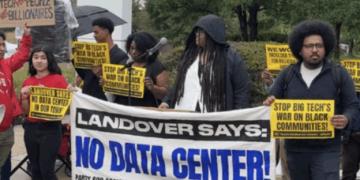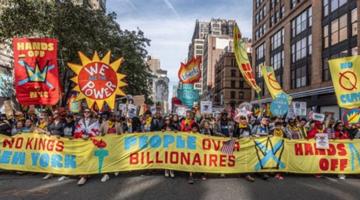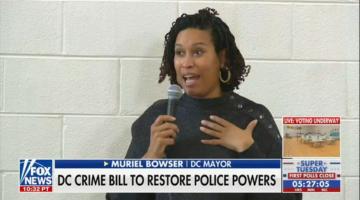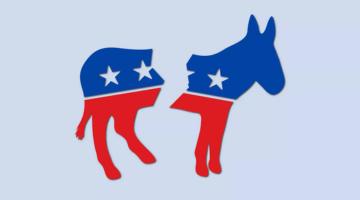By vetoing a bill to study reparations, Maryland Governor Wes Moore has aligned himself with a long line of Black Democrats who prioritize white approval over their own base.
With his veto earlier this month of legislation to study reparations for the descendants of enslaved Africans, Maryland Governor Wes Moore, a Democrat, signaled two things: first, he intends to seek his party’s nomination for the White House in 2028; and secondly, he plans to redeploy the discredited strategy of appealing to white voters by distancing his campaign from African Americans.
If recent history is any guide, that dog won’t hunt for Moore, the nation’s lone African American governor, any more than it did for Kamala Harris in her presidential campaign last year or Hilary Clinton in 2016. Both Harris and Clinton cut their teeth as politicians with policies that the African American working class widely regarded as deeply racist; both lost to Donald Trump.
In explaining his decision, Moore told reporters that his administration was focused on managing the impact of Trump’s federal spending cuts to the state budget and workforce. In that context, he said that the reparations bill creating a commission to study racial disparities in Maryland did not go far enough. The state, he said, does not need another study; it needs action.
“I was very transparent with the leadership and members of the General Assembly that anything that fails to meet the urgency of this moment, I will not sign it and it must wait for another time.”
Continuing, he said:
“A study group that is saying that they’re going to present reports to the governor in two years is fine. But the governor is ready to engage now.”
In an op/ed for Baltimore’s AFRO American newspaper, Dayvon Love, the policy director for the think tank, Leaders of a Beautiful Struggle, dubbed Moore’s veto “counterrevolutionary,” and described his explanations as cynical, noting that his organization had introduced a concrete reparations plan to the governor’s office in the summer of 2024 only to be told by the governor’s staff that the plan was a non-starter; the state budget shortfall made any proposal to redistribute resources a “nonviable political option.”
The legislation that Moore vetoed was, in fac,t written as a compromise measure to appease the governor, Love told the Baltimore Sun:
“...to say he wants to act now, that doesn’t square with the fact that I know my organization presented actual policy prescriptions and we were told that they weren’t inclined to move on them. I think, to be honest, he does not want to be associated with the radical Black nationalist movements [from] which the reparations demand emerges.”
Across social media platforms, whites have widely hailed Moore’s veto while African Americans have excoriated him for it, reflecting a yawning racial divide on the issue. A 2022 Pew Research poll found that while 77 percent of Blacks support reparations for the descendants of enslaved people, only 18 percent of white Americans do. An AI-generated summary of 832 responses to a Washington Post article on Moore’s veto asserted that the comments were “overwhelmingly” in support, with many writing that reparations are “impractical, divisive and politically damaging.” Wrote one poster on Facebook:
“The guy will be the Democrats nominee. He is what real leadership looks like.”
Unsurprisingly, African Americans expressed a dimmer view of Moore, who pledged to reduce the state’s racial wealth gap in his 2023 inauguration speech. Many Blacks offered scathing critiques not only of Moore, but of the African American misleadership class as a whole. Wrote one African American poster on Facebook:
“Just remember that Wes Moore is in the good graces of AIPAC and Zionist(s) like the rest of them.”
Wrote another:
“He needs to get (the) silent treatment from all Black people. Traitor for sure…”
And another:
“Unfortunately here is another example of a Black Democrat(‘s) loyalty to a racist party opposed to its Black constituency…”
The bait-and-switch strategy dates back to 1992 when Democrats were plotting how to reclaim the White House after 16 years, choosing Reagan’s racial wedge politics over Jesse Jackson’s 1984 and 1988 presidential campaigns which achieved some measure of success in reuniting the New Deal’s loose federation of Black and white workers.
Just days before Super Tuesday’s primaries in 1992, for example, Bill Clinton appeared at a press conference outside the Stone Mountain Correctional Institution in suburban Atlanta. Appearing alongside Georgia Governor Zell Miller, U.S. Senator Sam Nunn, and Congressman Ben Jones—who played “Cooter” on the Dukes of Hazzard—Clinton would say later that his only motivation was to shine a light on an innovative prison reform project that had reduced recidivism. But the writer Nathan Robinson would describe the event as “a press conference of little apparent purpose except to show [white politicians] standing in front of a phalanx of dour, jump-suited inmates, all but a sprinkling of whom were Black.”
Responding to newspaper photographs of the media event, Clinton’s rivals for the Democratic party’s nomination were quick to denounce the Arkansas governor. California Governor Jerry Brown compared Clinton and his mates to “colonial masters” soothing white settler fears of a rumored slave revolt or an attack by a Native American tribe. “Don’t worry, we’ll keep them in their place. ... Two white men and forty Black prisoners, what’s he saying? He’s saying we got ’em under control, folks.”
All the more revealing was that Clinton’s electoral strategy did not reach out to disaffected African Americans in any substantive way—other than playing the tenor saxophone (badly) on Arsenio Hall’s late-night talk show-- but instead focused on white suburban Democrats who were attracted to Reagan’s sectarianism.
Moore is clearly parroting Clinton’s strategy like Obama, Hilary Clinton and Harris before him. President Joe Biden reversed his position the moment he took the oath of office but among his campaign promises was a proposal to reform a criminal justice system that kills African Americans like George Floyd at nearly three times the rate of whites. Blacks turned out to vote for Biden, unlike Hilary Clinton and Harris who asserted proudly that she had no intention of pushing for reparations or any other policy that advanced the interests of the Black community alone. That, combined with her support for Israel’s genocide in Gaza, and her “lock-em-up” reputation as San Francisco and California’s top prosecutor, doomed her presidential campaign by tamping down African American voter turnout.
Similarly, Clinton’s support for her husband’s 1994 omnibus crime bill when she was First Lady, combined with her support of foreign commercial interests in Haiti and her cackling jubilation at Libyan ruler Muammar Gaddafi’s murder by US-backed rebels in 2011 when she was Secretary of State, sank any hopes she had of being elected president by reducing Black voter turnout.
Love, the policy director at the Leaders of a Beautiful Struggle, wrote that Moore’s “political integrity and standing amongst the masses of Black people is dependent on whether or not he follows through with his commitment stated in his rationale for vetoing the bill.”
But if remarks made on social media are any yardstick, that ship has sailed, and African Americans have already tuned Moore out for duplicating a losing campaign strategy in which politicians ignore their most loyal constituents and yet bizarrely expect their votes.
Jon Jeter is a former foreign correspondent for the Washington Post. He is the author of Flat Broke in the Free Market: How Globalization Fleeced Working People and the co-author of A Day Late and a Dollar Short: Dark Days and Bright Nights in Obama's Postracial America. His work can be found on Patreon as well as Black Republic Media.



















